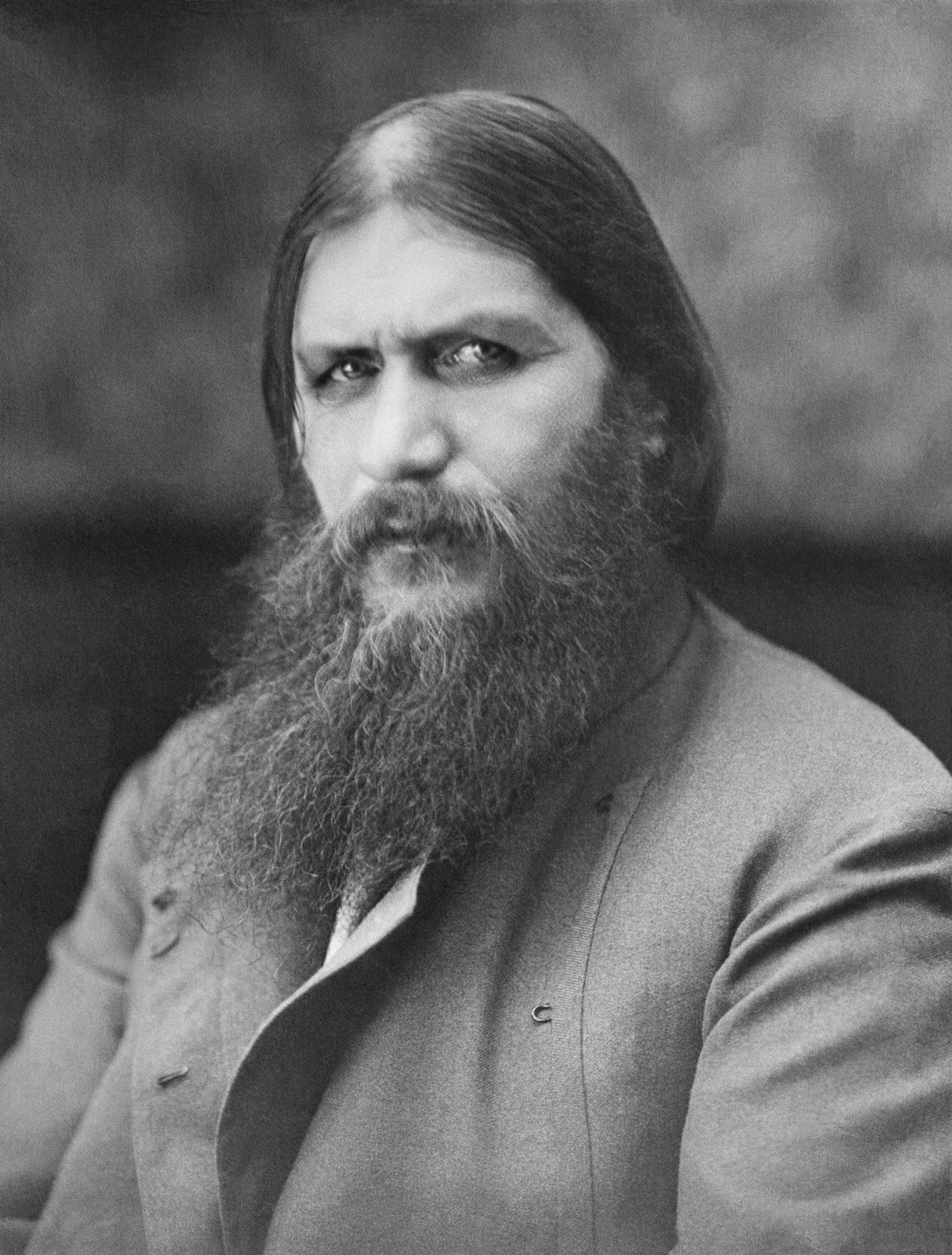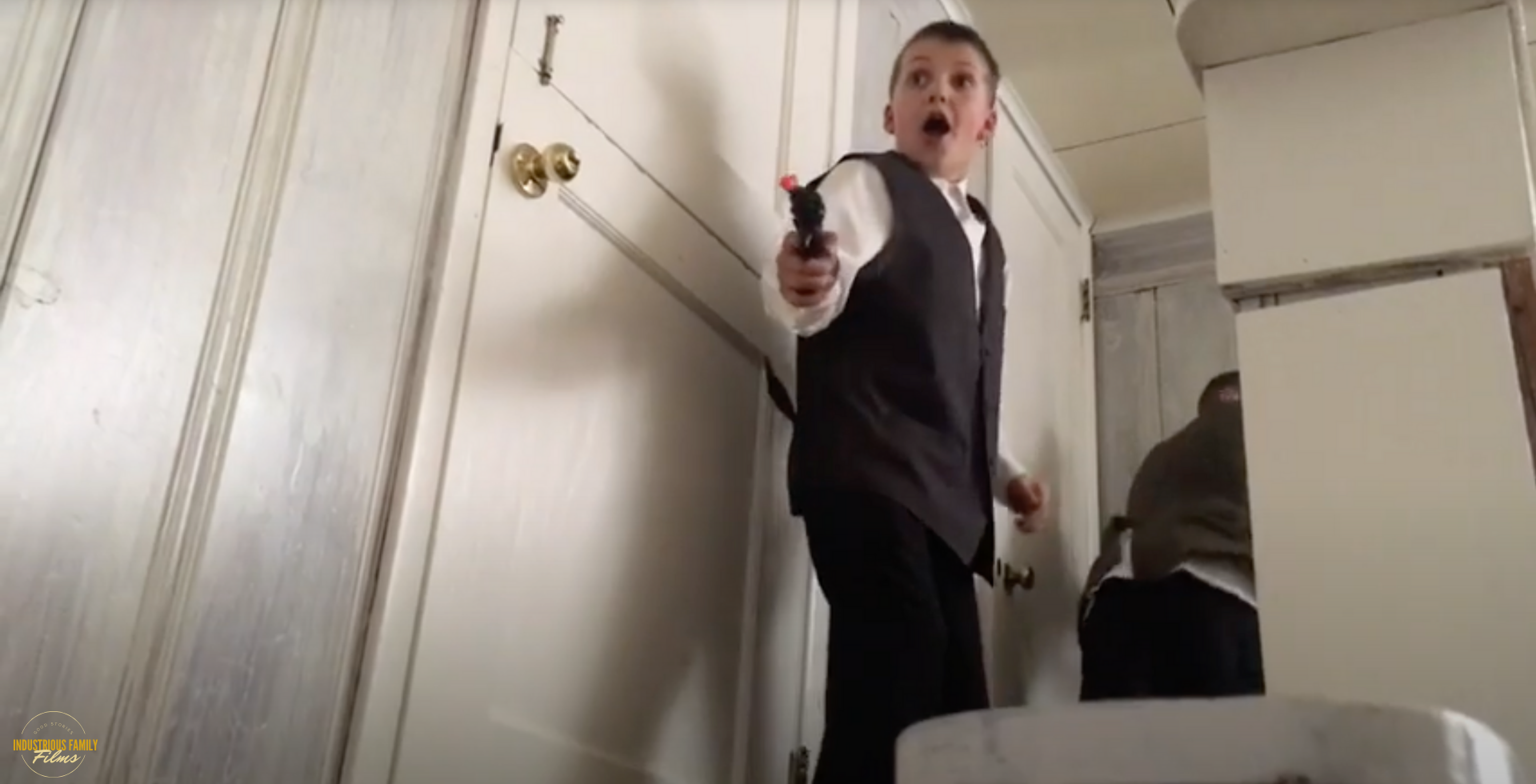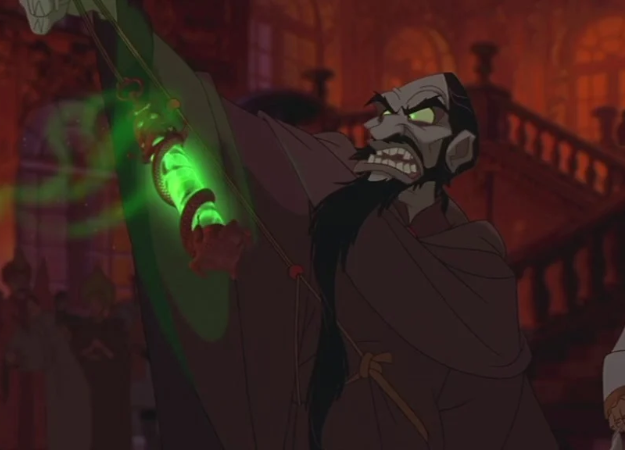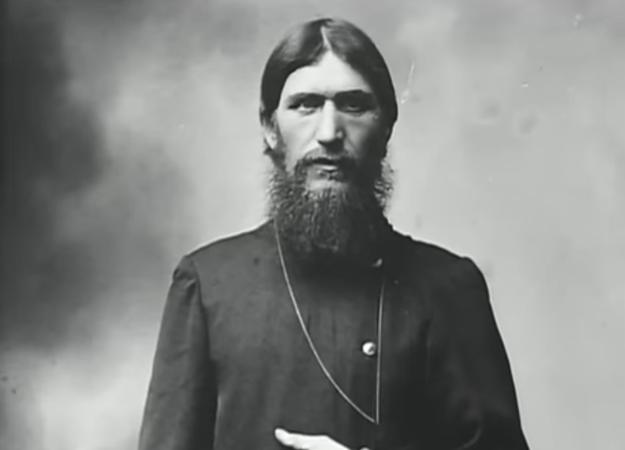Don't miss your chance to invest in 'Fabiola'!
Visit our crowd-funding page for our new production, "Fabiola"!
- Home
- Kid's Historical Shorts
- The Six Deaths Of Rasputin
Films Attempt to Answer the Century-Old Question: How Did Rasputin Die?
Disclaimer: As an Amazon Associate, I receive a small commission if you purchase items on this page at no extra cost to you.
How did Rasputin die? History has left this mystery unsolved for over a century. Perhaps the real question isn't how Rasputin died, but did Rasputin die at all? Whatever the truth, we know for sure the six ways he did not meet his end.
Several years ago, Industrious Family Films released a short film exploring the intriguing story of Rasputin’s death. Many children know this Siberian villain from 20th Century Fox's portrayal in Anastasia. Rasputin’s life and eerie influence are also vividly depicted in the Discovery Channel series The Last of the Tzars. In Industrious Family's short film, however, Rasputin undergoes the six deaths as recounted in Warren Carroll's work 1917: Red Banners, White Mantle.
Industrious Family's 2018 Short Film: "The Six Deaths of Rasputin"
It’s December 31, 1916, and a group of Russian royals have decided that Rasputin, the mystic with an alarming influence over the Czarina, must be stopped. Their only problem? Czar Nicholas refuses to see Rasputin as a threat.
Determined to eliminate him, Nicholas' relatives plot to murder Rasputin in secret. Here’s what happened at Felix Yusupov’s home that night. Even after hearing about his six possible deaths, the question of how Rasputin died remains as valid as ever.
- Was it the three doses of cyanide he consumed?
- The three gunshot wounds, each capable of being fatal?
- The blows to his head dealt with an iron bar?
- The weighted plunge into the frigid Neva River?
- Or, although not depicted in the film, the cracking of his skull as his body tumbled into the water?
Whatever finally stopped the would-be mystic’s heart, one fact remains: when his body was pulled from the river (with sticks because the Russian people feared Rasputin so much that they would not touch it with their hands), ice had filled his lungs. He had been alive when he entered the water, still struggling for breath as he sank beneath the surface.
Subscribe to Industrious Family Theater!
Already a Member? Watch Now!
Rasputin’s Portrayal in Anastasia
For many, their first introduction to Rasputin comes from the animated film Anastasia. Although the movie touches on some historical facts about him, it doesn't truly address the real question: "How did Rasputin die?" In the film, he drowns in one of the opening scenes after cursing the royal family.
He is portrayed in such a horrifying light that some of us were surprised he was a real character! However, his portrayal suits the film’s fantastical story, in which the young Princess Anastasia Romanov is presumed to have survived.
The con artist Dimitri finds Anastasia and plans to reunite her with her grandmother, more out of greed than charity. But as he gets to know her, Dimitri's motivations shift, and he seeks to give the orphaned princess a real life. Meanwhile, Rasputin, trapped in limbo, discovers that his death curse remains unfulfilled since one Romanov has escaped the Bolshevik Revolution. Now, he returns to earth with one goal: destroy Anastasia, the last of the Romanov line. Now it's up to Dimitri and the last surviving Romanov princess to thwart Rasputin's plans and break his spell once and for all.
Discovery Channel’s Documentary Series The Last of the Tsars Reveals the True History
A very engaging documentary series, The Last of the Tsars follows the rise of the Revolution and the fall of the Romanov royal family. The three part series spends the first episode covering the early life of Nicholas and Alexandra and their marriage. The second documentary expounds on Rasputin and his role in the destruction of Imperial Russia. The final segment recounts the sad ending of the royal family and the death of the dynasty.
A great documentary with personal accounts from the Russian people covering what may be the greatest tragedy of the twentieth century: Russia's fall into Communist power. This is a documentary that draws you into the narrative while recounting a page of history. Take it from someone who doesn't normally like documentaries: This one is well worth the watch despite its tragic tale.
More About Rasputin’s Role in Russian History

Rasputin claimed to be a monk and a mystic with healing powers. His supposed abilities caught the attention of Czarina Alexandra, desperate for a cure for her son’s hemophilia. Rasputin quickly became a close advisor to the royal family, raising eyebrows across the empire.
Historian Warren Carroll blamed Russia’s collapse and the downfall of the Romanov family on their unwavering trust in Rasputin. He referred to the Bolshevik Revolution as “Rasputin’s ultimate legacy.”
As tensions mounted, one of the Czar’s cousins, along with a doctor and an army captain, resolved to save Russia by assassinating Rasputin. Sensing his end was near, Rasputin signed letters as “the spirit of Rasputin,” and even prophesied what would follow his death:
"If I am murdered by boyars, nobles, and if they shed my blood, their hands will remain soiled with my blood, for twenty-five years they will not wash their hands from my blood... Tsar of the land of Russia, if your relatives cause my death, none of your family will survive more than two years. They will be killed by the Russian people."
On the night of December 30-31, 1916, Rasputin’s assassins took action:
- They poisoned him with three cakes and two glasses of wine.
- They shot him three times, near the heart and head.
- They beat him with an iron bar.
- They drowned him in the river.
All the while, Rasputin unnerved his assassins. But even then, did these attempts at killing Rasputin truly succeed if there was water discovered later in his lungs, signifying that he had been still alive and trying to breathe underwater?
Let’s Keep the Conversation Going! How Did Rasputin Die?
We'd love to hear your thoughts and theories about Rasputin’s mysterious death. Do you believe one of the theories presented here, or do you have your own ideas about what really happened that fateful night in 1916? Join the conversation by chatting with us below, and let's unravel the mystery together!
Subscribe To Our FREE Email Newsletter:
Awards:


#RebuildChristianArt Blog
An aid for families encouraging the reconstruction of the social fabric by sparking interest in Christian art and culture. Find beautiful novels, films, music, food and customs.
What's New At The Studio
-
A French Filmmaking Family Brings Old-World Charm to Our Christmas Special
Dec 27, 25 09:00 AM
-
Radio Personality Joe McClane To Join Us For Industrious Family’s 2025 Christmas Special!
Dec 26, 25 09:00 AM
-
Merry Christmas from Industrious Family!
Dec 25, 25 09:00 AM






